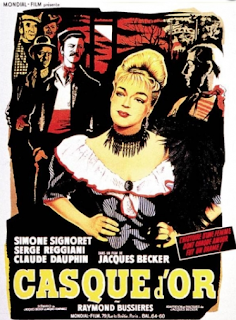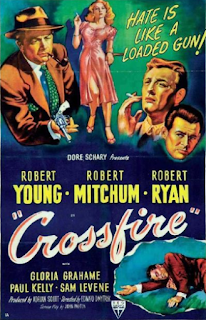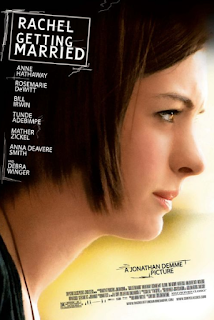Loro (2018)
Silvio Berlusconi, Italy's Prime Minister in four governments, is one of the most fascinatingly puzzling figures of the country's last thirty years. His life is surrounded and punctuated by scandals and controversies, like the unknown source of his money early on in his career, the accusations of him being linked to Mafia, his tax frauds, his affairs with underage girls and prostitutes, his attempts to create laws ad personam to protect himself from criminal charges, his influence over Italian television and his inappropriate or even downright offensive behavior and remarks during national and international political meetings. The list goes on, and yet Berlusconi is still beloved and held in high esteem by a surprisingly large portion of Italian population - at this year election, Berlusconi's party (Forza Italia) received 14% of the votes even though the man himself was currently banned from any legislative office for six years (a sentence overturned in the last two days). So, ultimately, it's not surprising that Paolo Sorrentino (The Great Beauty, Youth), one of Italy's greatest contemporary directors, decided to make a movie about such an interesting figure, a man so clearly dishonest and inconsistent and yet so incredibly popular. Sorrentino's Loro does not follow the traditional schemes of a biopic: first off, many of the characters are given fictitious names (even though it's rather easy to identify their real-life counterparts); secondly, the film does not follow Berlusconi's whole life but only focuses on the few years between Forza Italia's loss and Italy's 2006 elections to his eventual re-election in 2008, his divorce from actress Veronica Lario and 2009's devastating L'Aquila's earthquake; thirdly, the film's goal is bigger than just give a personal depiction of a political figure: it's a powerfully relevant and profoundly disturbing social commentary on Italian high society and political scene.
The film's opening scene is set in Berlusconi's mansion in Sardegna. A goat enters into the villa: the conditioner's temperature decreases progressively until the goat falls on the floor, dead. There are many scenes like this in the movie, especially throughout the first part, and they are likely to turn many viewers off. Sorrentino's style does not mean to pleases everyone and it's perfectly understandable why many people would care little for this not-so-subtle metaphors that could easily come off to some as a needless, meaningless exercises in style. But if you're willing to surrender to Sorrentino's unique, peculiar vision, you're in for an absorbing, atmospheric and captivating ride.
Throughout the movie's first hour, Berlusconi is totally absent: but his presence can be felt - he is "him", a figure so powerful and influental that works as an unspoken force within each of the character's interactions. At the beginning the film focuses on Sergio Morra (Riccardo Scamarcio), an ambitious man living in Taranto who runs a traffic of young, attractive girls he uses to corrupt politicians in order to obtain contracts without following the regular procedure. He moves to Rome where he starts his social climb with a firm goal set into his mind: meet Silvio Berlusconi and enter into the circle of his trusted, close associates. Morra lives with Tamara (Euridice Axen), a woman who shares his unscrupulousness and addiction to cocaine. Sorrentino does a magnificent job at portraying the degenerated, immoral enviroinment of the high society Morra and Tamara so desperately want to belong: a lesser director would have kept the story at arm's length, easily condemning the situation it depicts. But Sorrentino lets us have a close, intimate look into this troubled world of lavish, cocaine-filled parties and grotesque figures: he does not hold back on anything and the result is a depiction that is so skin-crawling and disturbing because it is so vivid and realistic. Sorrentino is a director that is occasionally criticized for being excessively focused on the aesthetic: there is definitely a feeling of complacency in his films that is understandably off-putting, but his stylistic choices are not self-serving and they genuinely add a lot to the film. Luca Bigazzi's cinematography is marvelous, with every frame being a stunning, carefully studied, aesthetically pleasing piece of art. The discrepancy between the sheer beauty of the images and the unsettling milieu of the story is one of the main elements that makes it so utterly fascinating from start to finish.
But this is not just a film that works in terms of mood and aesthetic: it's also a film full of interesting, layered characterizations and performances. Scamarcio delivers an excellent performance, entertainingly portraying his character's often clumsy attempts to join the elite but also bringing the needed emotional and moral weight to his character's disconcerting, almost pitiful quest for power. And he finds his perfect match in Axen, who never justifies her character's lack of ethics while still evoking a certain degree of sympathy for her own plight. The two performers work wonders together, creating a genuine affection drowned by their unstoppable, selfish ambition. And the rest of the cast is very strong as well: Kasia Smutniak brings a distant allure to Kira, called the Queen bee because of her intimate relationship with "him", but also finds the tragedy of the character, an aging woman who is forced to realize that as soon that Berlusconi will replace her as soon as her beauty fades; Fabrizio Bentivoglio is effectively slimy and appropriately pathetic as Santino Recchia, a former Minister who secretly wishes to replace Berlusconi as the leader of centre-right while being completely unaware that he is being manipulated by everyone around him, including Tamara (who is his lover); Anna Bonaiuto makes the most out of her limited screen-time as Capa Caiafa, a deceitful, double-sided member of parliament; and there's an especially impressive performance from newcomer Anna Pagani as aspiring actress Stella, whose audition with a producer known as "God" takes a very dark turn. Pagani is wonderful in the role, delivering a quietly powerful, largely reactive portrayal of this young observer who witnesses the depravity and corruption around her. Her character's final scene with Berlusconi is easily one of the movie's highlights.
Speaking of Berlusconi, he takes long to appear on-screen but when he does he becomes its driving force. Sorrentino depicts the character in a way that is neither judgemental nor indulgent towards his flaws and his deeds: it's just human. And Toni Servillo's performance is absolutely magnificent: he inhabits the character flawlessly, perfectly reproducing his character's gestures, facial mimicry and voice. But his performance is not merely an imitation and Servillo crafts a remarkably delicate and complex portrayal. He never turns the character into a clown, even though the person in question seems to do his best to resemble one. Servillo brilliantly captures the charisma, appeal and crass sense of humor of this political figure as well as his sharp ability to convincingly manipulate people around him - a scene in which he pretends to be an estate agent on the phone and gradually convinces a woman to buy a house is a masterclass in acting, and the same goes for a brilliantly edited sequence in which Berlusconi persuades six senators to vote for his party. And in the few moments in which the character drops his cheerful façade, Servillo brings a threatening edge that makes his performance extremely interesting and unpredictable. But there's also a lot of sensitivity in his performance - in the more private scenes, Servillo is amazing at conveying the squalor of Berlusconi's affairs but also his fundamental loneliness and stubborn refusal of his aging and the passing of time. The movie especially thrives in its depiction of Berlusconi's crumbling marriage with Veronica Lario, played by Elena Sofia Ricci in a phenomenal performance of raw intensity and ferocity. The character of Veronica is especially well-written: a former actress who left her career behind when she married Berlusconi in the 1980s, Lario is depicted as an intelligent, educated but also hypocritical woman who silently condemns her husband's political dishonesty but is unwilling to give up the privilege that his lifestyle grants her. Ricci nails all of her character's contradiction - she brings an incredibly powerful weight to her character's struggle between moral values on one hand and the safe comfort of her economic status as well as the memories of the genuine love she once felt for her husband on the other hand. She's finally pushed to the breaking point by his philandering and their beautifully written break-up scene is marvelously acted on both ends: Servillo is brilliant at portraying his character's unwillingness to hold a mirror towards his own actions and Ricci gives a devastating depiction of a woman whom years of humiliation have turned into an embittered shell of the person she used to be.
Loro is a film that is bound to be divisive. But it's a profound, melancholic reflection on a corrupt, decaying society. The final scene, with the exhausted firefighters sitting on the ruins of L'Aquila, is a metaphor for a crumbling country and its people's cry for help. But the film does not play easy: it does not point the finger at anyone, it does not try to place blame. Everyone is suffocated by a society in which power and money are the only goal. Everyone is desperately, helplessly alone. Everyone is both victim and perpetrator. Loro is more than a depiction of a political figure: it's the portrait of an era, a piece of the history of a country and a sad, meditative perspective on a world ravaged by greed. It's not a film that will please everyone, but it's a film that has to be seen.
100/100




Your ratings for the cast? I haven't read your review yet since I'm going to see Loro 2 tomorrow, and i'll share my thoughts on the movie as soon as i can.
RispondiEliminaServillo - 5
EliminaRicci - 5
Scamarcio - 4.5
Axen - 4 (bordering on a 4.5)
Smutniak - 4 (bordering on a 4.5)
Bentivoglio - 3.5
Cantarelli - 3.5
De Francesco - 4
Bonaiuto - 4
Pagani - 4.5
I thought everyone, even in the smallest roles, was effective with what he/she had to do.
Can't wait to hear your opinion on the film :)
Just got back from Loro 2 and before i give any thoughts i should specify that i'm not a big admirer of Sorrentino's previous work, actually i disliked both Youth and Il Divo.
EliminaLoro 1 was a huge disappointment for me, and i hated that first scene with the goat. I thought Sorrentino in the first part wanted to recreate a Scorsese movie (with various references to The Wolf of Wall Street and Goodfellas, especially in the pool drug scene). The only positive note i had from the first part was the acting, I really liked both Scamarcio, Axen and Ricci. Servillo's performance is particular i would say; in the first part he didn't have much screen time and his accent seems odd to me at first.
Then today i saw Loro 2 and I loved it, I didn't have many expectations and i was so overwhelmed by the movie! Servillo's performance is terrific, the phone call and the confrontation with Ricci are the highlights of the movie for me.
I generally like Sorrentino quite a lot in general, but anyway I thought Loro 1 and Loro 2 were great both separately and as a whole. I think I preferred Loro 2 as well, but it wouldn't work as well if Loro 1 did not build up to it so excellently. I'm glad you liked the acting, and really I think Elena Sofia Ricci's performance should be talked about more. She is incredible.
EliminaI think one part of my last comment was deleted while i was publishing it.
EliminaBy the way I'll rewrite it.
I thought Ricci was excellent and she had terrific chemistry with Servillo. I liked both Pagani (her scene with "God" was so creepy) and Smutniak (the party scene was heartbreaking, and I actually loved her final reaction). The only thing that disappointed me was how Scamarcio and Axen's characters were handled in the second part, i know the movie is about Berlusconi but i wanted a bit more focus on them.
Overall i hope to see a complete edition someday.
Are you looking for to see Dogman?
Ricci was absolutely mesmerizing in the role (perhaps my favorite performance of the film). I'm glad we mostly agree about the cast, and thinking about it I'd upgrade both Axen and Smutniak to 4.5s. I was initially disappointed too about Scamarcio's and Axen's character being droped quite abruptly and uncerimoniously, but reflecting on it I think it's fitting to their character: they spend the two movies trying to pursue a fleeting dream, sacrificing every moral they might have, and they end up being two perfect nobodies, with nothing left aside from their own, strained relationship to mend.
EliminaI can't wait to see Dogman.
Haven't seen this but I'm glad 2018 has at least one great movie for you so far.
RispondiEliminaI’m sure the film will divide audiences, but I loved it. Sorrentino is not a crowd-pleaser but I think he’s a true artist.
Elimina